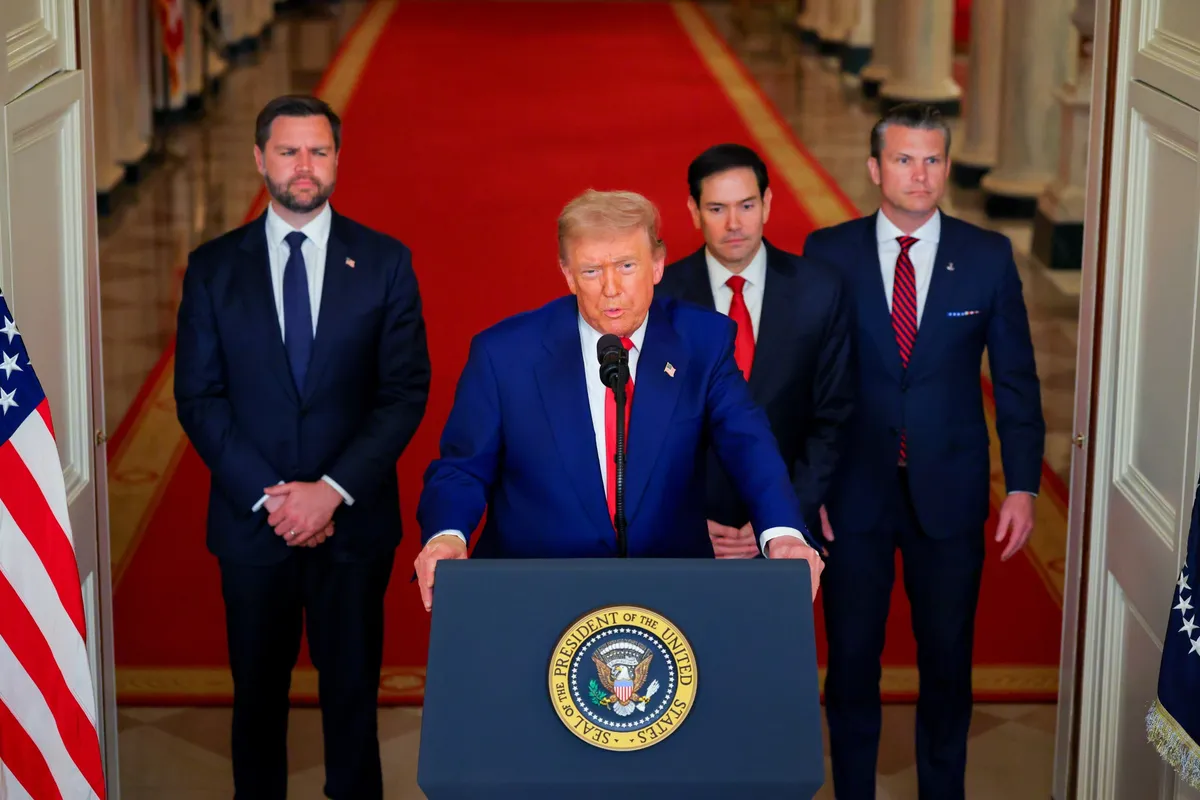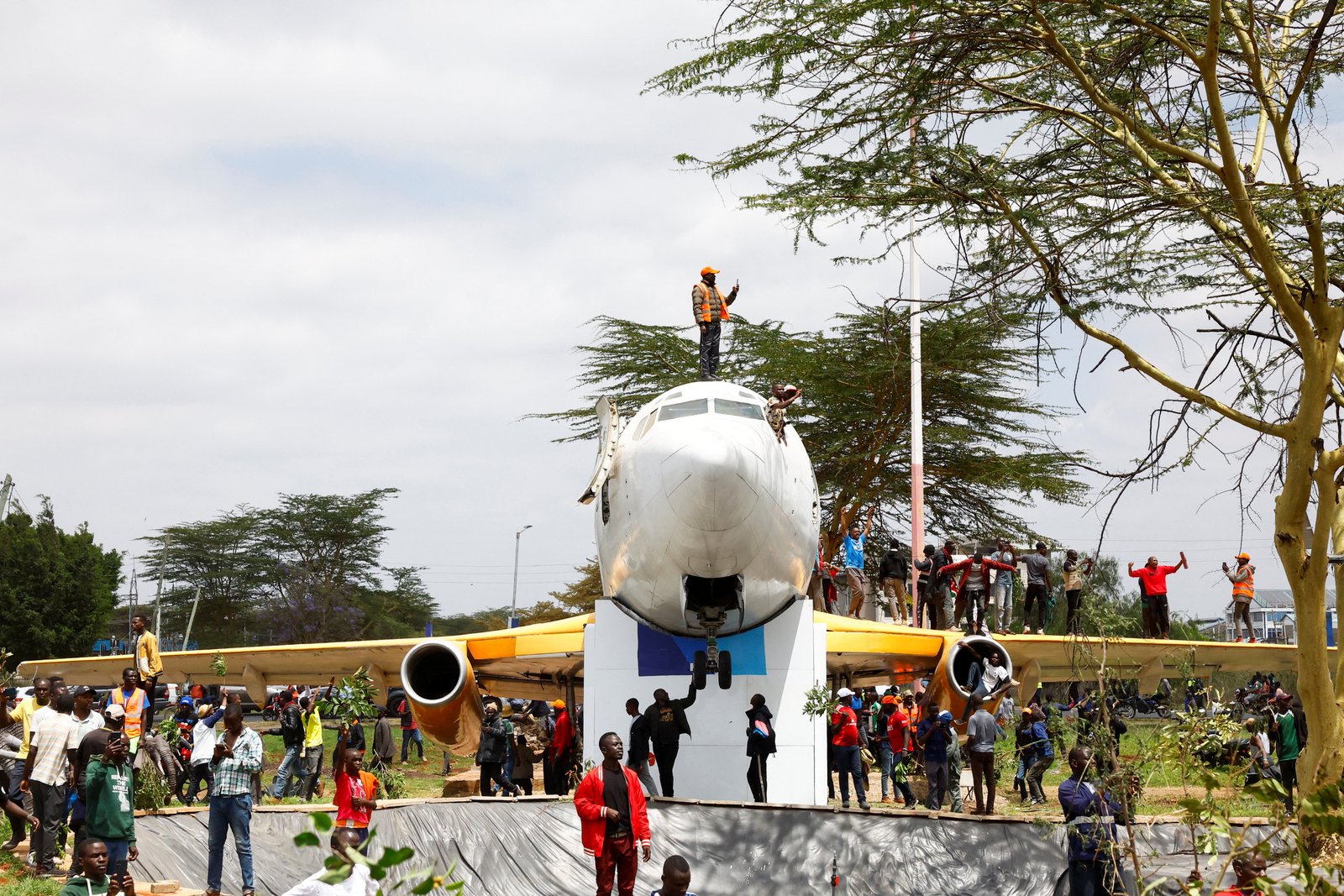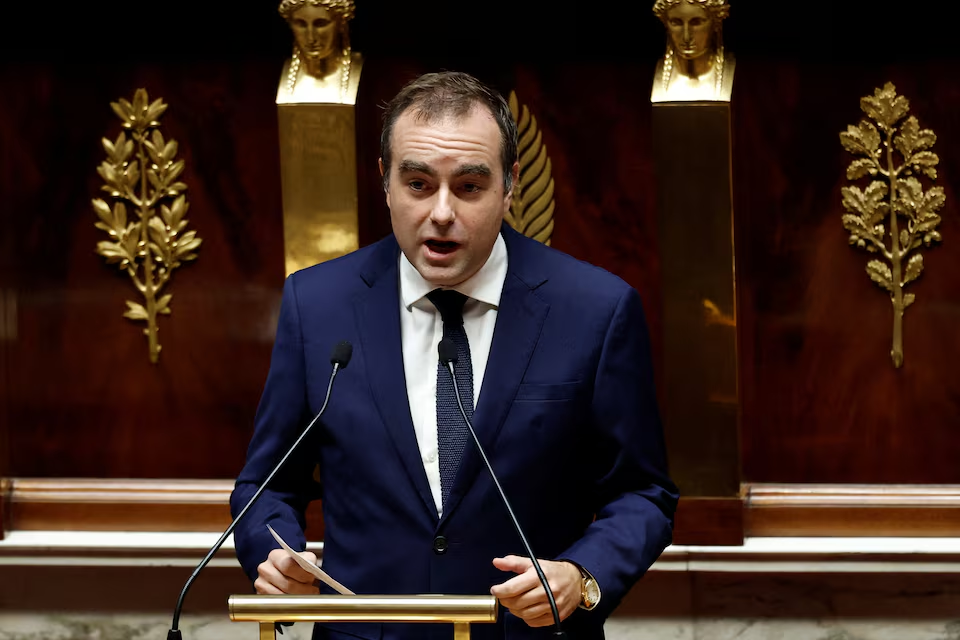ChatGPT said:
If Peace Doesn’t Come, Iran Will Face a Far Greater Tragedy – President Donald Trump in Address to the Nation
[Washington – June 22, 2025]
On Saturday night, President Donald Trump delivered an address to the nation from the White House, speaking about the U.S. military strikes on Iran.
He described the strikes on Iran’s nuclear facilities as “a spectacular military success.” He also issued a stern warning: if Iran does not “make peace,” the U.S. will carry out “even larger strikes.”
Trump said, “There will either be peace, or there will be a tragedy for Iran far greater than what we have witnessed over the past eight days. Remember, many targets still remain.”
In a post on social media Saturday evening, he announced that the United States had conducted airstrikes on three Iranian nuclear sites—Fordow, Natanz, and Isfahan. The president said, “These sites have been completely destroyed.”
Trump stated that the objective of the operation was to “eliminate the nuclear threat posed by the world’s number one state sponsor of terror.” He added that, before launching military action, he had sought an agreement with Iran to halt its nuclear program. Referring to Saturday’s three targets, he said they were “by far the most difficult and potentially the most lethal.” He warned that future strikes on other sites could be carried out “with precision, speed, and skill” if peace does not come soon.
He expressed his gratitude to U.S. service members, and also thanked the Israeli military and Prime Minister Benjamin Netanyahu, who began operations against Iran a week earlier. The White House stated that the U.S. had alerted Israel ahead of Saturday evening’s strikes and that Trump spoke with Netanyahu after the attacks.
Iran’s Atomic Energy Organization (AEOI) confirmed the strikes but said the attacks would not stop Iran’s nuclear program. In a statement, it urged the international community to condemn the U.S. strikes.
Prior to the attack, Iran had warned that any U.S. involvement in Israel’s military operations would prompt retaliation. Over the past week, Iran has launched multiple missiles toward Israel.
Following Saturday’s address, Trump posted on Truth Social: “Any attempt by Iran to retaliate WILL BE MET WITH FORCE FAR GREATER THAN WHAT WAS WITNESSED TONIGHT.”
Iran has yet to officially respond or announce how it plans to react to the strikes.
Fordow: Located nearly 300 feet underground, Fordow is protected by a Russian-built air defense system. It is a high-grade uranium enrichment site capable of housing around 3,000 centrifuges.
Natanz: Situated approximately 135 miles southeast of Tehran in Isfahan Province, Natanz is Iran’s main enrichment facility, operating multiple cascades of centrifuges that allow for rapid uranium enrichment.
Isfahan: Located 80 miles south of Natanz, Isfahan is home to thousands of nuclear scientists and hosts three Chinese research reactors, as well as laboratories associated with Iran’s nuclear program.
Trump later shared a screenshot of a post from "Open Source Intel" on X, which read: “Fordow is gone.”
The U.S. strikes took place nine days after Israel launched its own operation against Iranian military and nuclear targets. Trump noted that the U.S. had not participated in that Israeli offensive.










